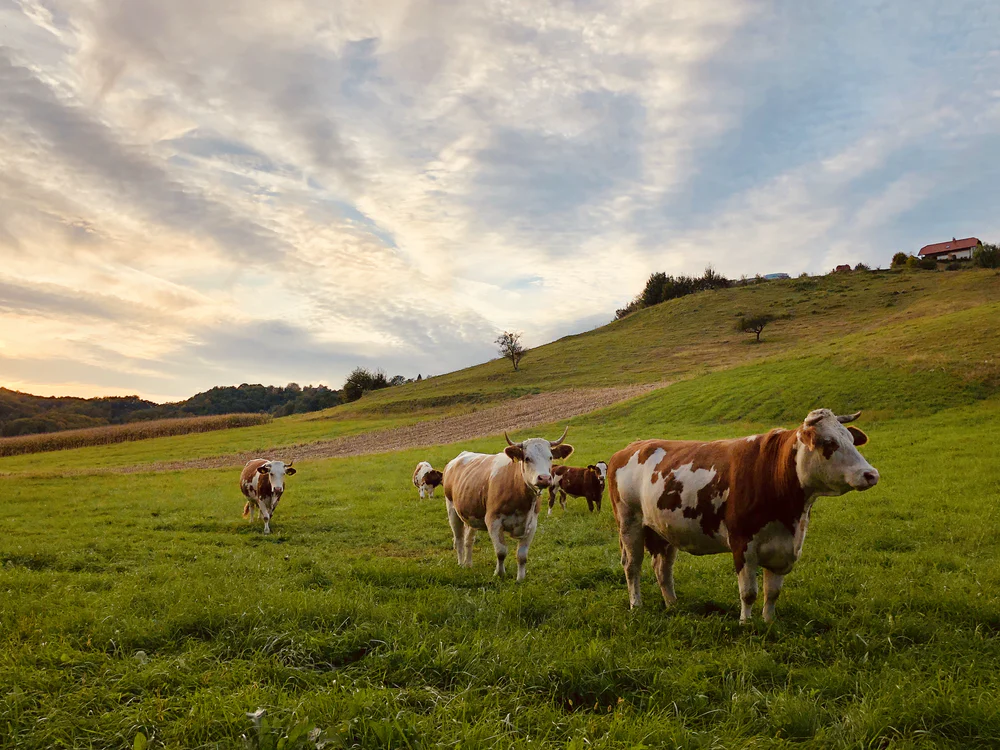1MG FlippingBooks
Legume research project boosts future of Tas red meat industry
Elizabeth Gracie

A $1.5m legume research project led by the Tasmanian Institute of Agriculture (TIA) is expected to boost Tasmania’s red meat industry by identifying and establishing resilient and productive perennial legume species to fill feed gaps.
Currently, the low proportions of legumes in Tasmanian pastures limit the productivity of the red meat industry.
The five-year project is being led by TIA Research Fellow Dr Rowan Smith and will take a comparative region-based approach analysing the high rainfall region of the North West Coast and the low medium rainfall region of the Tasmanian Midlands.
According to Dr Smith, establishing perennial legume species that can successfully persist to fill feed gaps and improve tolerance and productivity under waterlogging was crucial to the success of a healthy Tasmanian red meat industry.
“Legumes are known for driving the animal production system by bringing in a quality aspect to the feed base,” said Dr Smith.
“In low to medium rainfall environments there are fewer legume species options as many fail to establish and persist, so maintaining high legume content in dryland pastures can be a challenge for producers”.
The Tasmanian Midlands is a particular challenge for producers as less than 10 per cent of the area is irrigated, creating significant room to improve the surrounding dryland grazing country to increase stocking rates.
“By establishing perennial legumes, producers can extend their growing seasons beyond what is currently being achieved and enhance the resilience of their feedbase to the changing and variable climate,” said Dr Smith.
The initial stages of the project will see different species trialled and tested to evaluate how alternative new varieties of sowing practices could provide an advantage to legumes when first planted.
“We will be looking at what techniques can help establish pastures with optimal legume content to improve the quality of pasture for longer into the growing season,” said Dr Smith.
“We will also be investigating how to effectively re-establish legumes in grass dominant pastures, potentially removing the need and risk of a full pasture renovation”.
The project will work closely alongside local red meat producers like Simon Foster, the owner of mixed farming business, Fosterville Pastoral, who has said maintaining the legume component in his pastures was an ongoing challenge.
“We need this research to give us practical and cost-effective ways to re-establish the legumes,” said Foster.
“Increasing the legume component in or pastures will absolutely increase the productivity and profitability of our grazing business.
The project will begin this month, with the first round of sowings to begin in the Midlands region
NEWS

Prodoz, a Proudly Australian and family-owned agribusiness, based in Melbourne, is strengthening its positions as national/international leader in advanced crop – science solutions through a growing portfolio of global innovation partners and a distribution footprint supported by all major distributors - includes Nutrien Ag, Elders, Lindsay Rural and Independent Rural stores.

Trace minerals are required for optimal growth, reproduction, and immunity. Optimising trace mineral status relying solely on oral supplements across a herd may fail because of variation in individual intake and reduced absorption due to antagonism of other ration components and minerals. The use of injectable trace mineral supplements has been associated with positive reproductive outcomes including improved conception rate, increased odds of pregnancy and greater final in calf rate. A study conducted on 2,168 dairy cows, administered injectable trace minerals, four weeks prior to calving and again four weeks prior to the start of mating showed treated animals had a 3.3 per cent greater final in-calf rate, and a reduced time from start of mating to conception, compared to control animals 1 . The Importance of B12 Dr Carl Eden, Technical Services Veterinarian with Boehringer Ingelheim says “Vitamin B12 is sometimes referred to as a ‘super vitamin’ because it is only required in very small amounts but vital to many essential metabolic pathways. However, demand for B12 can vary considerably during the year and we see serum levels of B12 fall at critical times, such as the first few months after calving.” Vitamin B12 contains cobalt, so deficiency in cobalt can lead to deficiency in vitamin B12 because ruminants get most of their B12 as a byproduct of ruminal fermentation where the bacteria in their rumen assemble B12 from cobalt for use by the cow. Sub-optimal trace mineral and vitamin B12 status at calving, mating, and drying off has been shown to negatively impact growth, reproduction, and immunity. Using a trace mineral injectable containing vitamin B12 can improve trace mineral and vitamin B12 status at these critical times. Marks-Min with Vitamin B12 – The Evidence In the largest trace element study to date, Marks-Min Injectable Trace Mineral with Vitamin B12 demonstrated remarkable results when compared to a reference trace mineral injection. “Given the differences between Marks-Min and other products on the market, we wanted to generate a compelling data set to demonstrate how effective it was compared to the pioneer product. We entrusted this work to a third-party research company” says Dr Eden. “We chose farms that were at the top of their game from a reproductive perspective. We made sure that the farms had no evidence of trace element or vitamin B12 deficiencies or excess.” Across all outcomes of interest, Marks-Min demonstrated clear non-inferiority when compared to the reference product. Outcomes measured included submission, pregnancy and conception rates, and six week in-calf rate. Marks-Min demonstrated it is highly suited as an alternative treatment to the reference product. Reference: 1. Hawkins, D., and B. V. S. Franklin. New Zealand Dairy Veterinarians Newsletter 24 (2007): 12-16 Company website: livestockfirst.com.au Company email address: CustomerCare.Australia@boehringer-ingelheim.com Company video: https://vimeo.com/1138807630?fl=pl&fe=cm














